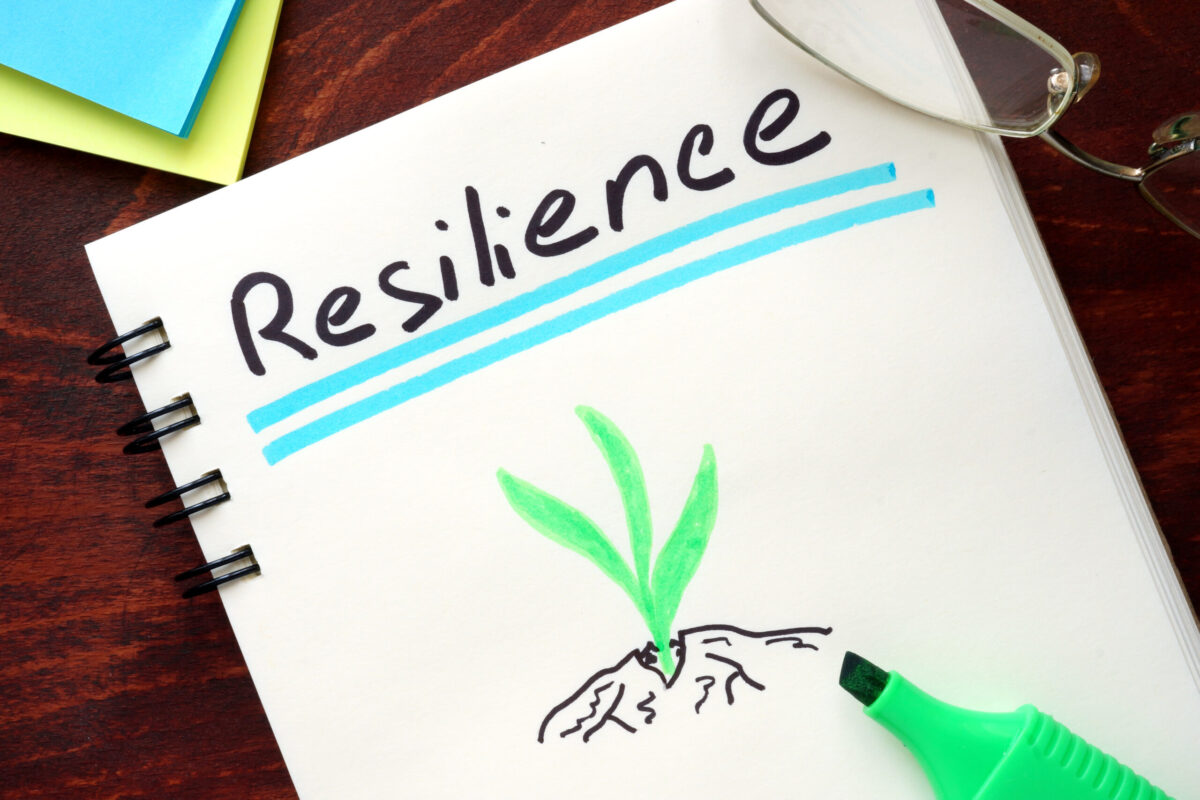“The good news is …”
“Look on the bright side …”
“I’ll bounce back.”
Do you ever find yourself thinking any of the above? If so, you’ve practiced resilience, or the ability to adapt to life’s misfortunes and changes.
Resilience is a key concept for anyone struggling to overcome trauma or abuse. It’s also a skill everyone can learn to help cope with change or challenges.
“Resilience can help you better self-regulate, concentrate and control your impulses,” says Dr. Jill Amos, licensed behavioral health psychologist for BlueCross BlueShield of Tennessee. “It takes more work to develop these skills as adults, but they are so valuable, especially if you’re someone who has high blood pressure, trouble paying attention or feels ‘revved up’ all the time. Learning to calm the brain and body can be life-changing.”
Here are 10 ways to build resilience in your life
As you learn about the skills below, identify your strengths and weaknesses. Choose 1 or 2 that resonate with you, align with your values and seem doable. Focus on building those first.
“As you work to build resilience, there will be successes and failures,” says Dr. Amos. “Practice and patience are key.”
1. Practice realistic optimism
Blind optimism can be harmful or even dangerous because it leaves you unprepared when things don’t go your way. Instead, practice reframing situations, or taking the time to look at a challenge from a new angle.
- How can I adapt to this?
- What are some other ways to see the situation?
- If I were the other person, how would I see it?
- What strengths do I have that will help me through this?
2. Face your fears
Identifying your fears is the first step to overcoming them. Think about a time one of your fears came true.
Ask yourself:
- How did I handle it?
- What would I do differently now?
- What did I learn from that experience?
You can also work through your current fears proactively.
- What’s my biggest fear?
- Who will be there to help me if it happens?
- Is there anything I can do now to prepare?
- How will I recover?
3. Activate your moral compass
A moral compass is a strong sense of right and wrong. You can build a strong sense of morality through altruism, or the selfless concern for the well-being of others.
- Use your skills and talents to help others.
- Find organizations that have specific goals that match your own.
- Give time, as well as money (if you can). Time is more personal.
To learn more about how doing good can make you healthier, click here.
4. Practice spirituality
Having a spiritual or religious practice may improve your well-being. It can help work through tragedy, lower levels of depression and foster forgiveness.
Engage your own spirituality by:
- Setting aside time for prayer or meditation each day.
- Reading scriptures or books that reinforce your faith.
- Joining a group that worships or practices together.
5. Find a resilient role model or mentor
Role models don’t have to be perfect. Consider asking a relative, coworker, coach, clergy or anyone you admire to mentor you.
- Identify the skills they have that you want to build.
- Break those behaviors into small, simple segments.
- Ask for feedback as you apply those skills to your life.
6. Add physical fitness to your routine
Exercise boosts attention span, decision-making skills and memory. It also increases endorphins, which improve your mood.
- Try different forms of exercise, even after you find one you like, to challenge yourself.
- Reward yourself as you meet your goals.
- Gradually increase the intensity.
- Aim to reach a point where physical fitness is part of who you are.
7. Build a social-support network
Social support can have an effect on longevity the same way physical activity can.
Start small:
- Make a habit of smiling or saying hello to a neighbor or co-worker.
- Pick up the phone and call a family member who is lonely.
- Tend to your relationships by reaching out to those who care about you regularly.
And remember: Gaining and giving support is a process, not a one-time thing.
8. Exercise your brain
Emotions are charged with mental and physical energy. Learn to control them better by building fluid intelligence, or the ability to think, reason and solve problems.
Dedicate time each day to stimulating and challenging your brain.
- Learn a language.
- Do a puzzle (word, number or one that comes in a box)
- Read a book.
For more on how to maintain a healthy brain, especially as you age, click here.
9. Learn to be mentally and emotionally flexible
Mental and emotional flexibility helps you manage stress, anxiety and depression. It also increases your ability to focus and respond to adversity.
The next time you’re in an emotionally charged situation, think about the tools you have to address those feelings. Work on shifting from one strategy to another depending on your circumstance.
Ask yourself:
- Where can I find meaning in this challenge?
- How can I better accept this change?
- How can I learn from this failure?
10. Find meaning and purpose
Most happy people don’t lead a charmed life; They figure out a way to meet challenges head on and learn from failure.
Every day, try to:
- Do something that gives you a sense of accomplishment.
- Set goals to help you look toward the future.
For more articles on mental health, click here.
Get more information about specific health terms, topics and conditions to better manage your health on bcbst.com. BlueCross BlueShield of Tennessee members can access wellness-related discounts on fitness products, gym memberships, healthy eating and more through Blue365®. BCBST members can also find tools and resources to help improve health and well-being by logging into BlueAccess and going to the Managing Your Health tab.


